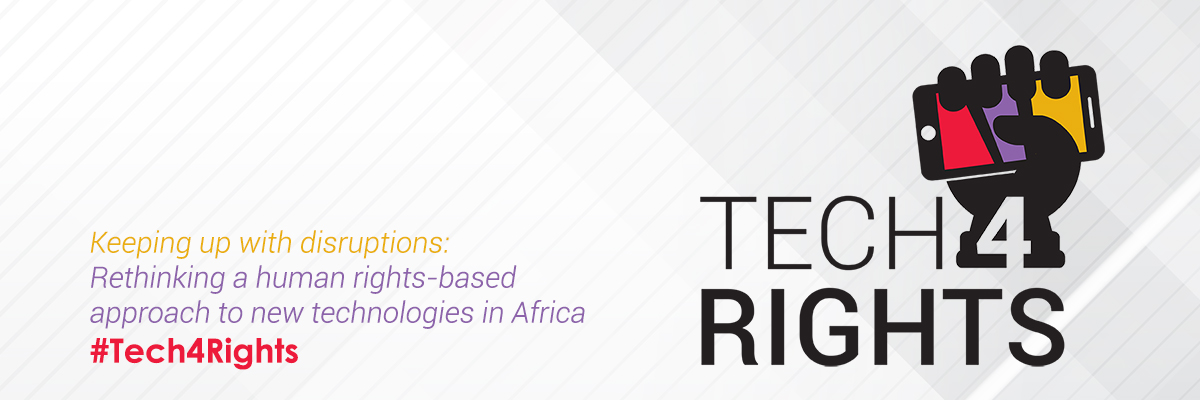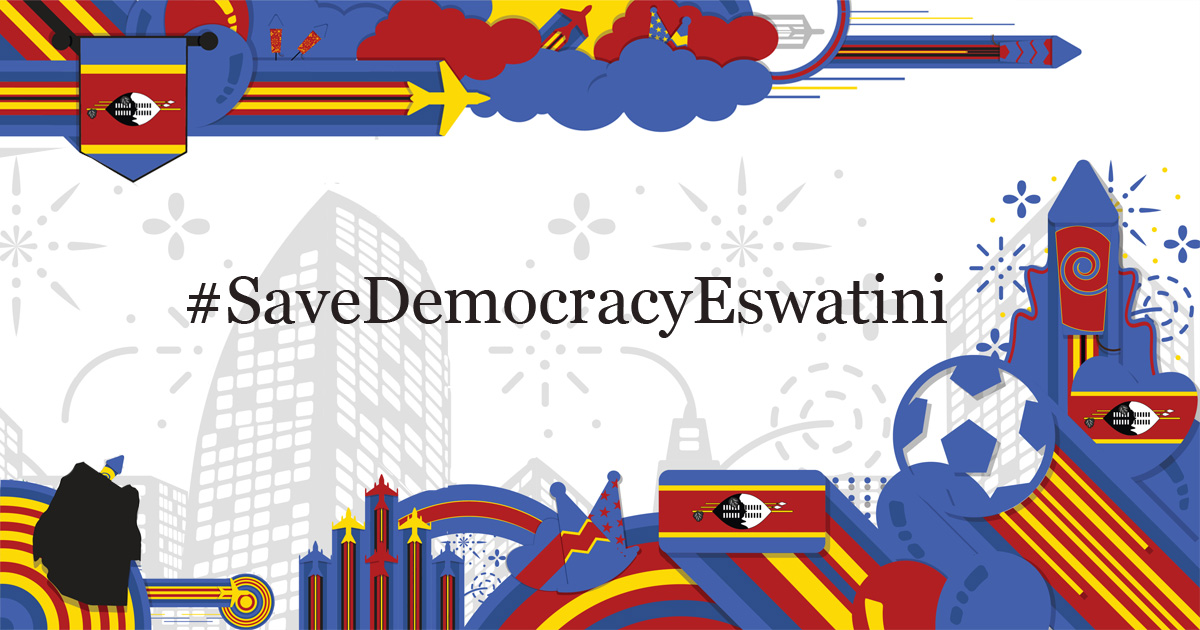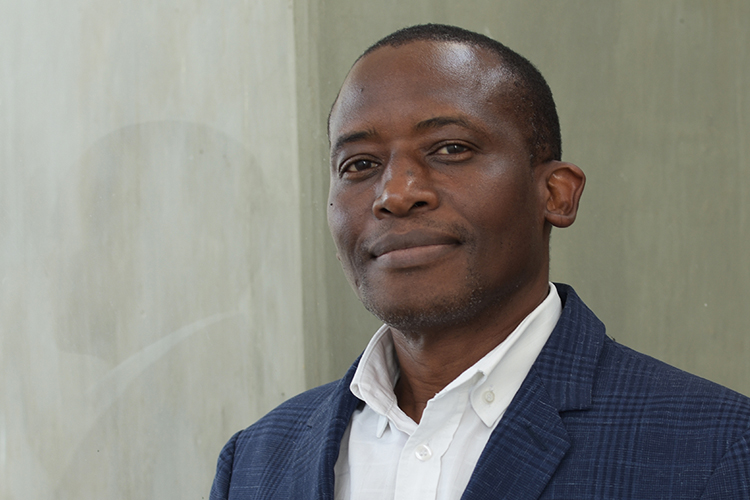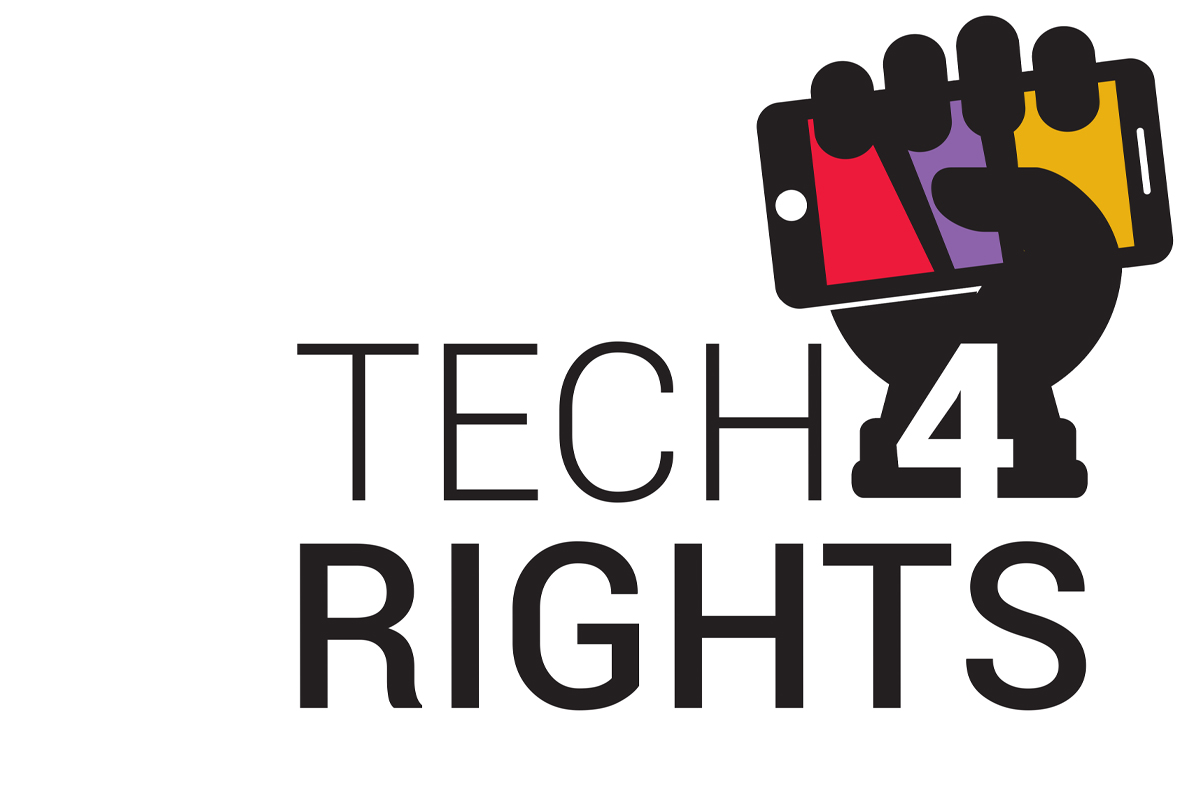1 Background: the Decree and the Constitution
- The Kingdom of Eswatini is situated in the south east of the Southern African region and surrounded on its north, west and south by the Republic of South Africa and bordered by Mozambique to the east. The Kingdom has a population of about 1,093,238 which is predominantly homogeneous, composed of ethnic Emaswati at 97.8 percent and 2.2 non – Swatis.
- After attaining independence in 1968, the political system was that of a multiparty system until the King, through Proclamation No. 01 of 1973 (1973 Decree), repealed the 1968 Constitution. The 1973 Decree expressly banished the operation of political parties and the King assumed leadership of both the executive and legislative powers until the enactment of the Constitution of the Kingdom of Eswatini Act 001 of 2005, which provides for freedom of association.
- Despite its provisions relating to its supremacy, the Constitution does not expressly abrogate the Decree and is silent on the position, operation, and effects of the 1973 Decree, which effectively means that it is still in force as the government continues to implement it. This essentially means the King is the highest authority in the land; he has the powers to veto bills and dissolve an elected parliament.
- Since the ban of political parties, political formations, civil society organisations and human rights defenders (HRDs) in the country have been rigorously challenging the legality and legitimacy of the 1973 Decree and at some point, a number of political parties were proscribed by the government. Challenging the Decree and calling for a democratic multiparty political system has led to HRDs’ reprisals by the state.
- Political parties only exist as associations of persons with similar ideas but cannot register as such because there is no process of registration. The government has argued that the constitutional clause on freedom of assembly and association does not extend to provide for political parties or their involvement in elections.
2 Are you aware of the democratic situation in Eswatini?
Here is a breakdown of what is occurring:
- The 1973 Decree banished the operation of political parties and the King assumed leadership of both the executive and legislative powers until the enactment of the Constitution of the Kingdom of Eswatini Act 001 of 2005, which provides for freedom of association. This also makes the King the highest authority in the land.
- The current system of government is a constituency (tinkhundla) that decentralises state power from central government to tinkhundla areas and individual merit as a means for election and public office appointment. As a result of this, political parties are barred from participating in elections and cannot nominate candidates contesting for elections. However, members of such parties can participate in the current system of governance for Eswatini through individual merit.
- Eswatini’s Legislature uses a bicameral system composed of the House of Assembly and the Senate. The Emaswati elect 59 Members of Parliament (MPs) into the House of Assembly on an individual basis. Four women are elected to meet the 30% Constitutional quota required by the House of Assembly (for regions where women are underrepresented)’ and an additional 10 Members of parliament are appointed by the King. The Senate comprises 10 senators elected by the MPs and 20 Senators appointed by the King. The Prime Minister is appointed by the King among the MPs from the House of Assembly.
3 Decoding democratic failure in Eswatini
- Eswatini experienced a first of its kind civil unrest in June 2021 after 3 MPs raised a motion in Parliament calling for compliance with section 67(1) of the Constitution of Eswatini, which regulates the procedure for appointment of the Prime Minister. The unrest was characterised by vandalisation of public and private infrastructure, looting in business establishments, road blockages and burning of traditional structures.
- It follows that since Prime Ministers are appointed by the King, they are not accountable to the people of Eswatini and do not serve the masses’ interest. The 3 MPs convened meetings in their respective constituencies. The outcome was that the electorate petitioned the constituencies (tinkhundla) listing a number of issues relating to poor quality of service delivery from the Government as a result of accountability issues from the Executive and the appointment of a Prime Minister not being elected by the people.
- HRDs have been spearheading the challenge on violation of the rights of the Emaswati, resulting in their arbitrary arrests and detention and denial of bail, and in grave circumstances, assassinations.
- The security forces violated fundamental human rights by use of excessive force to quell the civil unrest, and the curtailing of freedom of expression and access to information as the internet was shut down. As a result, about 245 people were treated for gunshot wounds and about 46 people lost their lives.
- After the unrest, the Minister of Housing and Urban Development banned municipal authorities or urban governments from issuing licences to institutions, entities, and individuals convening a public gathering.
- The actions of the Eswatini government violated several human rights enshrined in Eswatini’s Constitution as well as the African Charter on Human and Peoples’ Rights (ACHPR) and the International Covenant on Civil and Political Rights (ICCPR) which Eswatini ratified.
- The right to life (Article 6 ICCPR; Article 4 ACHPR)
- The right of peaceful assembly (Article 21 ICCPR & Article 11 ACHPR)
- The right to freedom of association (Article 22 ICCPR & Article 10 ACHPR)
- The right to receive information and freedom of expression (Article 19 ICCPR & Article 9 ACHPR)
- The right to liberty and security of persons (Article 9 ICCPR; Article 6 ACHPR)
- The right to participate freely in the government (Article 25 ICCPR & Article 13 ACHPR)
- Freedom against torture, inhumane or degrading treatment or punishment (Article 7 ICCPR; Article 5 ACHPR)
4 The Centre for Human Rights calls
- The Centre for Human Rights (CHR), Faculty of Law, University of Pretoria is concerned with the gross and systemic human rights violations targeted at HRDs, political activists, and civil society actors because of calls for greater reforms in Eswatini’s political governance system.
- In letters sent to the Prime Minister, the President of the Senate, and the Speaker of the House of Assembly of Eswatini; the African Commission on Human and Peoples’ Rights; the Pan African Parliament and the SADC Secretariat, the CHR calls on them to address and intervene in the human rights and democracy crisis in Eswatini.
- The CHR is particularly concerned about the situation of pervasive human rights, which saw the brutal assassination of renowned lawyer and human rights defender, Thulani Maseko, the CHR’s alumnus, class of 2005 and Vera Chirwa Prize Award 2011.
- Before Thulani’s assassination on 21 January 2023, Eswatini’s failure to effectively respond to the needs of its citizens led to civil unrest in June 2021. The civil unrest was precipitated by the repressive measures of the government to silence people desperately calling for multiparty democracy. In response, the government unleashed riot police, who violently meted out violence on the people who were genuinely exercising their right to freely protest and demonstrate. As a result, an estimated 46 people died, 245 were heavily wounded, and 337 were arrested. In addition to these human rights violations, two members of parliament were arrested under trumped-up charges relating to terrorism and they have remained in custody awaiting their trial. Another political activist was doused with petrol and set alight in the face by state security agents at a roadside checkpoint.
- In light of the egregious human rights violations and democracy deficit in Eswatini, the CHR calls on civil society organisations to continue their efforts to document the violations and lobby the government to desist from violating the freedoms set out in the Eswatini Constitution and in treaties to which the country is a party, and pursue justice for the victims.
- The CHR also calls on the Pan African Parliament and the African Commission on Human and Peoples’ Rights to conduct investigations to establish the human rights violations taking place and issue recommendations, reminding the state of its obligations to protect, promote, respect and fulfil human rights.
- The CHR further calls on Eswatini to ensure that independent investigations of the human rights violations from 2021 to 2023 are conducted and the perpetrators held accountable. The Kingdom of Eswatini must cooperate with civil society, regional human rights mechanisms and the people of Eswatini in facilitating political dialogue before the September 2023 elections.
SaveEswatiniDemocracy, an advocacy campaign by the Human Rights and Democratisation in Africa (HRDA) Class 2023 namely: CHIKOMBA Idirashe Amanda, CHITHOPE-MWALE Chimwemwe, GREENE. O Jonette-Ann Matilda, KANHIYA Lakshita, KASONDE Kafula, KITHEMBE Ilse Syonthi, MOYO Daniel Thamsanqa, MSOMI Zaharah Nosisekelo, MUROPA Makomborero Carl and NSIBANDZE Mlondi.
For more information, please contact:
On 28 May 2021, the Disability Rights and Women's Rights Clinics at the Centre for Human Rights, University of Pretoria, held an advocacy meeting on ratifying the African Disability Rights Protocol and the Older Persons Protocol. The purpose of this meeting is to advance the ratification of the two Protocols, to understand the progress made at the governmental level in South Africa ????????, Ghana ???????? and Kenya ???????? in terms of ratification efforts and to engage civil society organisations on the ratification of the Protocols. The meeting will bring together high-level representatives from government, academia, representatives from civil society organisations (CSOs), and the international community.
Campaign Activities
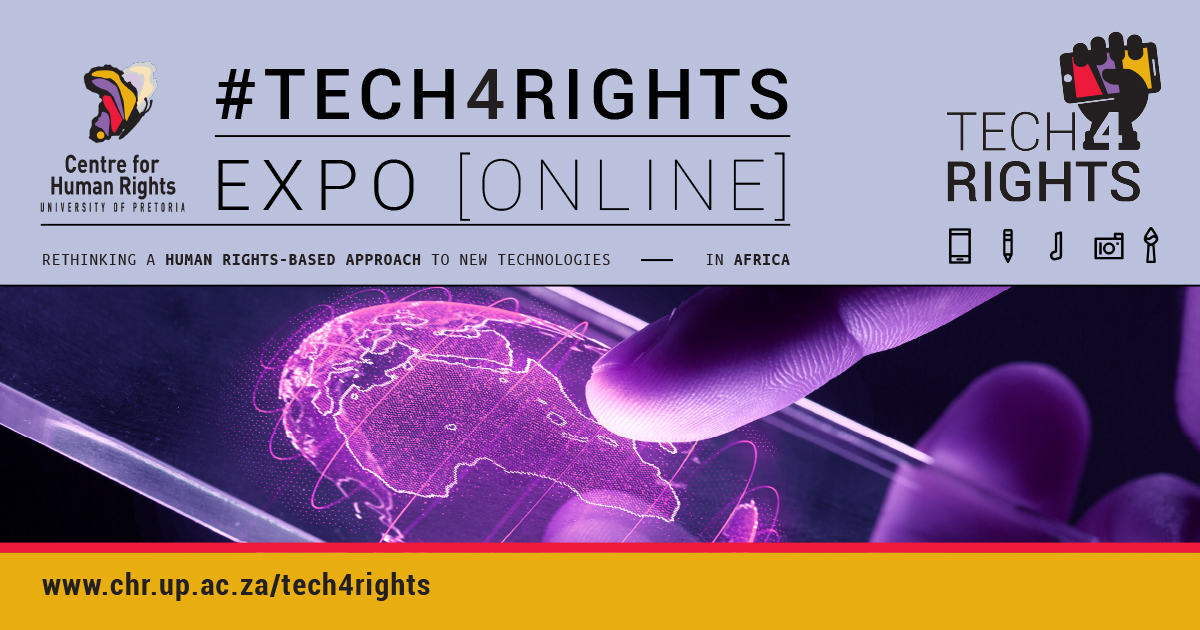
Tech4Rights Expo
26 - 29 October 2021
Join academics, civil society, human rights defenders, state and private sector representatives, artists, and many more in exploring how technology influences human rights. Be part of this discussion from the 26th of October to the 29th of October 2021!
Read More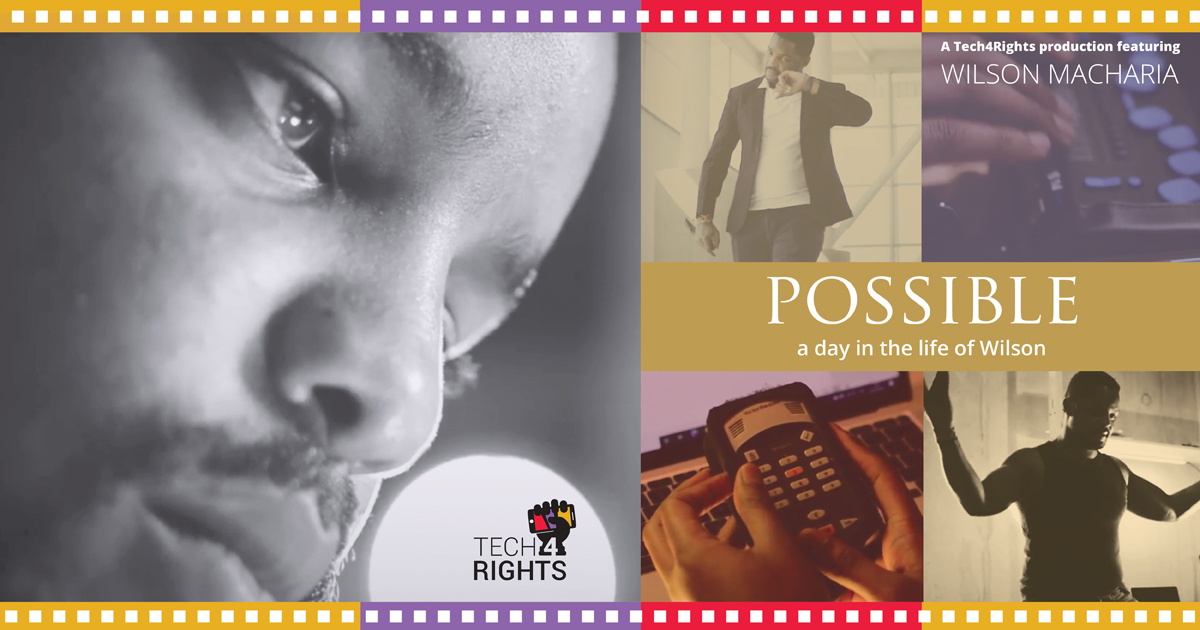
Possible
A day in the life of Wilson
A #Tech4Rights production: Watch Wilson Macharia demonstrate how technology makes things possible for persons with visual impairments as he takes us through a day in his life.
Read More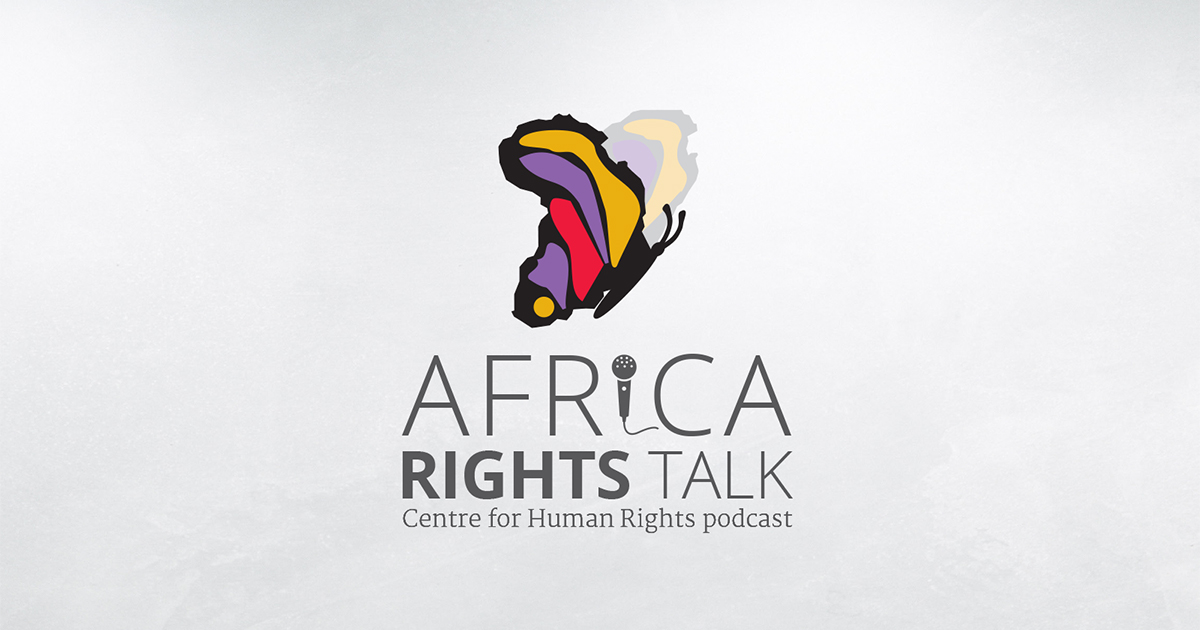
Reflections on conversion therapy, current practices, emerging technology, and the protection of LGBTQ+ rights in Africa
14 September 2021
This episode reflects on the newly launched African Human Rights Policy Paper Conversion therapy: Current practices, emerging technology and the protection of LGBTQ+ rights in Africa. This policy paper has been prepared by the Sexual Orientation, Gender Identity and Expression and Sex Characteristics (SOGIESC) Unit at the CHR
Read More
#Tech4Rights- Exploring the downfalls of social media use for protests and activism
3 August 2021
One of the ways Africans are using technology for interaction and to amplify human rights issues on the continent is through social media. Statistics show that Southern Africa has the second-highest social media penetration on the continent, at approximately 41%, placing the region as the second-highest social media users on the continent.
Read More
#Tech4Rights- Confronting online violence against sexual minorities
27 July 2021
This podcast episode is a conversation on confronting online violence sexual minorities. In Africa, several governments have developed laws that criminalise LGBTIQ+ persons and infringe on their human rights. Laurah Arudi, an expert on SOGIE and participants of the Digital Rights in Africa course who are also Paradigm Initiative Fellows, Kofi Yeboah and Emsie Erastus explore the rights of sexual minorities online.
Read More
#Tech4Rights- Children’s rights to privacy in the digital sphere in Africa
20 July 2021
The digital space exposes children to new ideas and diverse sources of information. Using digital technologies also arguably exposes children to new opportunities to learn, reduces inequalities and contributes to the realisation of their rights such as the right to education, the right to privacy, freedom of expression, access to information and public participation.
Read More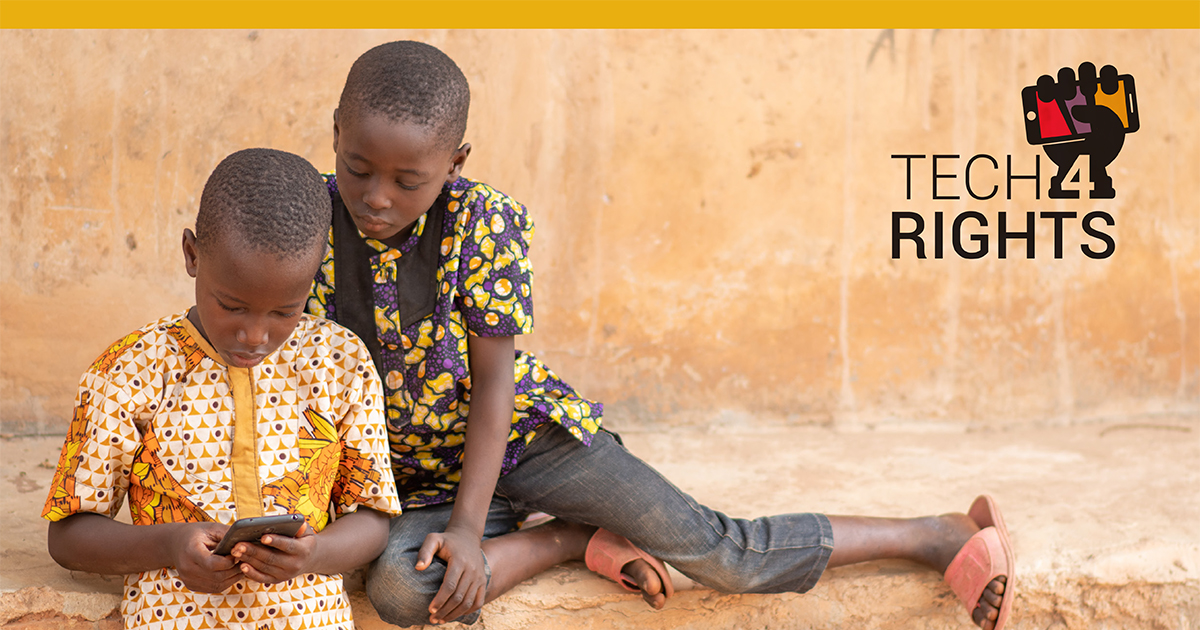
Webinar on children’s rights to privacy in the digital sphere in Africa
20 July 2021
The Centre for Human Rights, Faculty of Law, University of Pretoria (UP), cordially invites you to a webinar organised by the Children’s Rights Unit and the and the Expression, Information and Digital Rights Unit. The focus is on children’s rights to privacy in the digital sphere in Africa. This event forms part of the Centre’s campaign #Tech4Rights which focuses on the impact of new technologies on different aspects of human interaction and its impact on human rights.
Read More
The use of assistive technologies for persons with disabilities
24 June 2021
In this episode of Africa Rights Talk Wilson Macharia, an LLD candidate working at the Centre is in conversation with Silver Francis Oonyu, a Disability Rights Advocate from Uganda. Both Wilson and Silver use assistive technology and discuss their experiences as users with visual impairment. Assistive technologies vary depending on the type and degree of one’s disability. This episode touches on various assistive devices, however, the main focus is on those used by persons with visual impairments.
Read More
Access to the internet and internet governance in Africa
6 June 2021
The annual campaign spearheaded by the Centre for Human Rights, University of Pretoria is #Tech4Rights: Rethinking a human rights-based approach to new technologies in Africa. The #Tech4Rights campaign focuses on the impact of new technologies on different aspects of human interaction and the impact of technology on human rights. The discussion explores what meaningful access means, based on Part IV of the African Commission on Human and People’s Rights resolution on Freedom of Expression and Access to Information on the internet, including conversations on regulatory and operational challenges of licencing community networks in Africa.
Read More
Exploring the implications of online assemblies
27 May 2021
In its seminal General Comment on the right of peaceful assembly, adopted last year, the UN Human Rights Committee found that Article 21 of the International Covenant on Civil and Political Rights “protects peaceful assemblies wherever they take place: outdoors, indoors and online; in public and private spaces; or a combination thereof.” In the process of developing this General Comment over the previous two years, the question of the extent to which the right could be exercised wholly-remotely had been one of the most frequently-discussed topics. In 2019 CGHR put together a Research Pack on the issue, and hosted an Expert Meeting for members of the Committee and other stakeholders to discuss the full implications.
Read More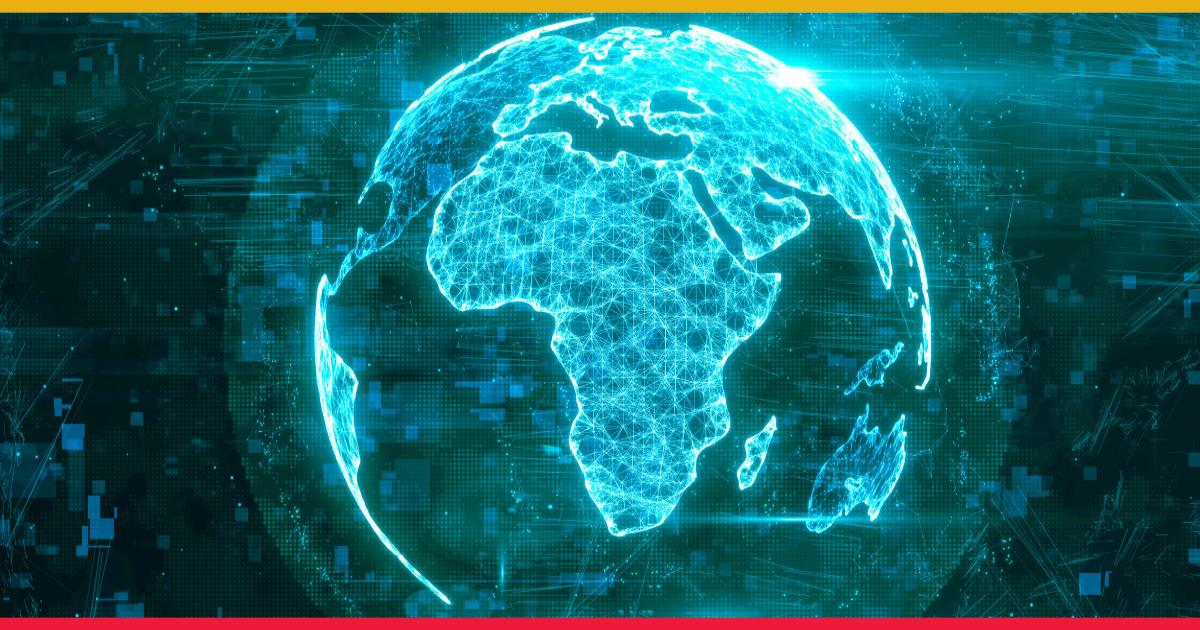
The right to privacy in the digital age in Africa
24 May - 28 June 2021
The Centre for Human Rights, University of Pretoria, with the support of Google, is presenting a Massive Open Online Course (MOOC) on the right to privacy in the digital age in Africa. The course focuses on the key elements of the right to privacy and data protection in the digital age in Africa. The course aims to educate and set the tone for an improved data protection landscape within the African region.
Read More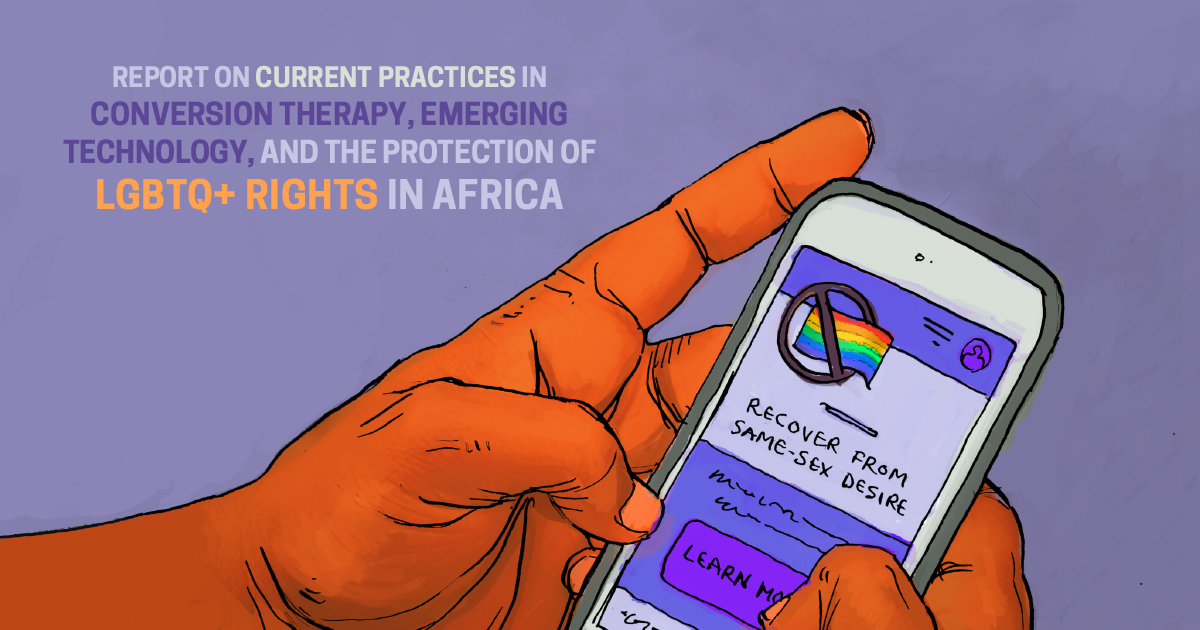
Report Launch
17 May 2021
The Sexual Orientation, Gender Identity and Expression and Sex Characteristics (SOGIESC) Unit of the Centre for Human Rights, Faculty of Law, University of Pretoria, is hosting a virtual launch of a new report titled Report on Current Practices in Conversion Therapy, Emerging Technology, and the Protection of LGBTQ+ Rights in Africa. The launch features a webinar panel discussion and a Q&A session with the audience.
Read More
Other Planned and Proposed Activities
- A series of activities that focus on the interlinks between human rights generally, the right to health specifically, the COVID-19 pandemic and technologies within the African context.
- The creation of an advocacy toolkit aimed at civil society organizations on how to better use digital technologies to further their work in protecting human rights;
- Book launch and the state of privacy in Africa;
- Multi-stakeholder dialogue: Training sessions for judges, police officers, Civil Society Organisations (CSOs) and interested stakeholders.
- Human rights and technology conference;
- University debate competition.
Invitation: #Tech4Rights Expo
The Expression, Information and Digital Rights Unit at the Centre for Human Rights, University of Pretoria hosted the #Tech4Rights Expo, which was held online from 26 to 29 October 2021.
The Centre for Human Rights, University of Pretoria launched the #Tech4Rights campaign in 2020. This campaign focuses on the impact of new technologies on different aspects of human interaction including: businesses, democratic development, children’s rights, persons with disabilities, electronic evidence, strategic litigation and other key areas of human rights that intersect with new technologies. As part of this campaign, the Expression, Information and Digital Rights Unit of the Centre will host an online #Tech4Rights Expo from 26 to 29 October 2021.
About the Expo
Join academics, civil society, human rights defenders, state and private sector representatives, artists, and many more in exploring how technology influences human rights.
Let us as stakeholders collectively find ways to leverage digital technologies for the advancement of human rights in Africa.
Among the themes featured in the Expo include business, education, democratic development, artificial intelligence, children’s rights, and persons with disabilities.
Come and sample the multi-layered and innovative efforts of various stakeholders in using technology for human rights.
Be part of this discussion from the 26th of October to the 29th of October 2021!
Objectives
- To facilitate the sharing of knowledge, experiences and lessons learnt in harnessing new technologies for the advancement of human rights, and combating challenges;
- To provide a platform for engagement with duty bearers on adoption of human rights approaches to implementation of digital technologies in Africa;
- To build stronger regional partnerships for advocacy on the effective use of digital technologies for human rights protection; and
- To provide a space for creative minds to showcase innovative tools, applications and strategies for the promotion and protection of human rights in the digital age.
About the #Tech4Rights Campaign
Keeping up with disruptions: Rethinking a human rights-based approach to new technologies in Africa.
View #Tech4Rights campaign activities
The surge of technological advancements in the last few decades has had major impacts on our society in an unprecedented manner. We see the effect in the transformation that is occurring in the shifts within healthcare delivery, access to education, coordination of protests, engagement in warfare and several other examples. In as much as we have come to see the disruptions caused by technologies, its rapidly evolving nature makes it challenging to have all the answers at present on its impact on human rights protection. There is a potential dark side to the technological innovations being witnessed today which begs the question: In what ways do technologies impact human rights protection in Africa?
For instance, there is a growing concern for the impact robotic innovations will have on the workforce as well as ensuring accountability during conflict and warfare. There is also documented evidence of how new technologies are impacting democratic development across the world while considering how artificial intelligence through facial recognition technologies is aiding the work of policing but concurrently fostering systemic bias. While we have achieved a more connected global world, we have also succeeded in compromising human rights protection.
As much as technologies provide opportunities to advance human rights protection, there is a need to have the difficult conversations that focus on responsible innovations and rights-respecting technologies that put human rights first.
The Centre for Human Rights, University of Pretoria as a leading human rights organisation in Africa that works on most of these issues in its capacity as a research, advocacy and academic department is, therefore, launching a yearlong campaign in 2020 that focuses on the impact of new technologies on different aspects of human interaction. The campaign will have a series of activities that look into technology in the following specific areas: business and human rights; democracy and digital technologies; children’s rights and new technologies; assistive technologies and persons living with disabilities; electronic evidence and strategic litigation and other key areas of human rights that intersect with new technologies.
Campaign Goals
- Awareness raising on the impacts of technologies on human rights protection;
- Capacity-building for human rights defenders on policy and digital security issues;
- Stirring public activism and advocacy against the harmful impact of technology on human rights and
- Policy and sectoral reforms
